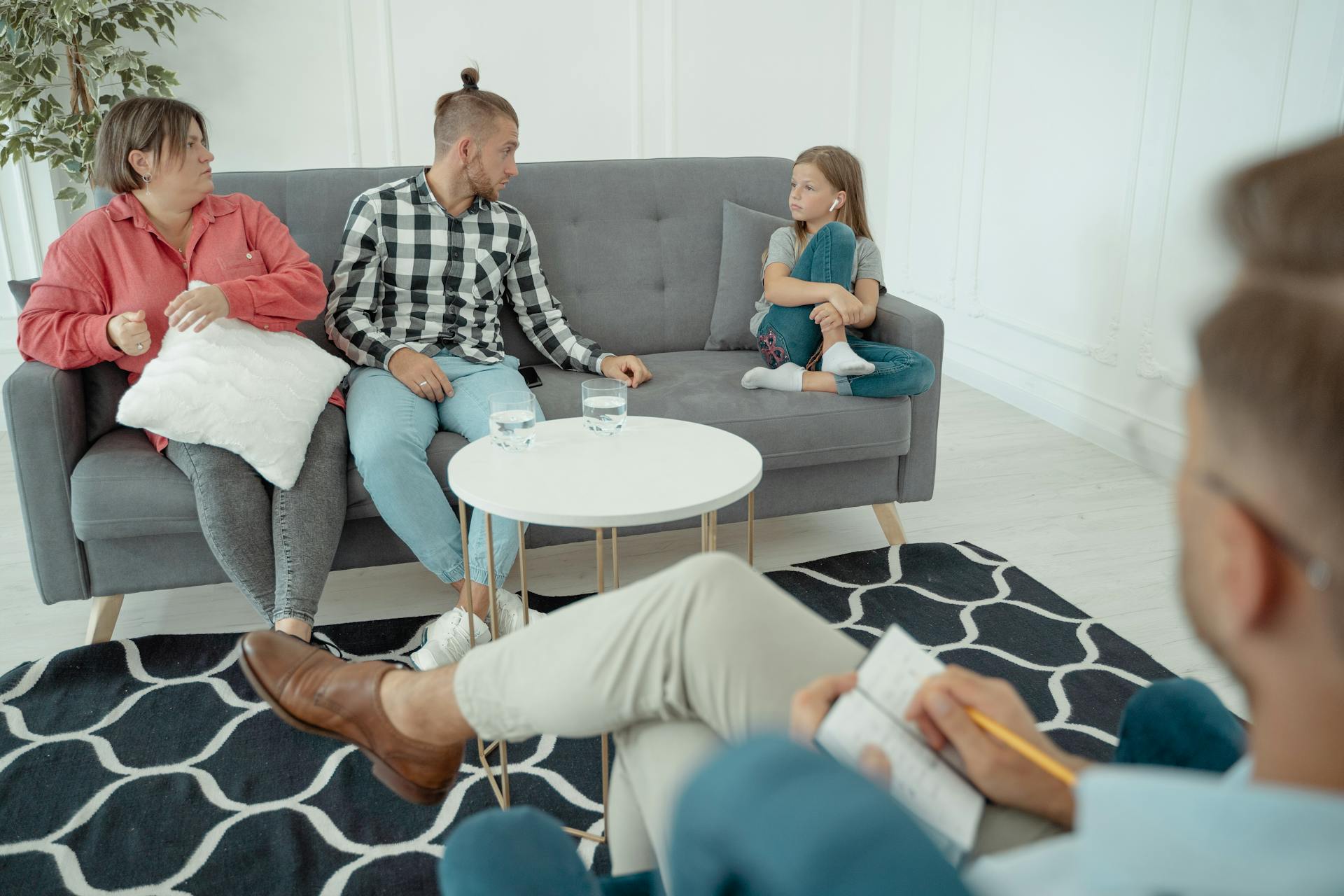Family can be your greatest source of love or your deepest source of pain. For many young adults in their 20s and 30s, relationships with parents, siblings, or extended family often feel strained, emotionally distant, or filled with unresolved tension. Whether you’re navigating cultural expectations, generational trauma, or childhood wounds, family therapy offers a powerful opportunity to move from conflict toward connection.
The truth is, most families aren’t broken, they’re just misunderstood. Miscommunication, emotional avoidance, and inherited patterns often leave family members feeling hurt, unheard, or stuck. Family therapy creates a space to untangle these issues, rebuild trust, and foster genuine understanding. It’s not about blame, it’s about healing.
Why So Many Young Adults Are Seeking Family Therapy
If you’ve ever felt like you’re the one carrying the emotional weight of your family, you’re not alone. As a 20- or 30-something today, you’re part of a generation more emotionally aware and self-reflective than ever. But that often means you’re also the one noticing what’s not being said—the silent tension, the unresolved grief, the expectations that feel like pressure instead of love.
Family therapy gives you the tools to:
- Set boundaries without guilt
- Break cycles of silence, shame, or emotional withdrawal
- Understand your family’s patterns from a psychological and cultural lens
- Heal relationships instead of cutting people off
It also gives your family members a neutral space to express themselves. Whether you’re dealing with parental conflict, sibling rivalry, or generational disconnect, therapy helps each person be seen, heard, and understood.
What Happens in Family Therapy?
At its core, family therapy is a guided conversation. A licensed therapist helps facilitate discussions around conflict, communication, emotional roles, and shared values. The therapist doesn’t “take sides,” but instead helps the family understand how each member contributes to the overall dynamic and how to create new, healthier patterns.
Different therapy models bring unique strategies to the table. For example:
- Structural family therapy focuses on reshaping the family system by clarifying roles, improving boundaries, and rebalancing authority. It’s particularly helpful for families with power struggles, unclear expectations, or parent-child conflicts.
- Family constellation therapy works on identifying generational trauma and unspoken family dynamics passed down subconsciously. This method helps uncover hidden patterns that influence current behavior and emotional responses even when no one realizes they’re at play.
These methods also relate to how past psychological trauma shapes present behavior. As explained in Are Recovered Memories of Psychological Trauma Valid?, memory and trauma play complex roles in emotional healing
Dr. Kinnari Birla Bharucha brings these evidence-based approaches into her course, tailoring each therapy process to the family’s cultural background, communication style, and emotional needs.
Cultural Expectations vs. Emotional Needs
For many first-generation adults, family conflict doesn’t just come from personal disagreements, it comes from cultural dissonance. You may want to pursue therapy, independence, or career choices that challenge your family’s traditions or expectations. On the other side, your parents may struggle to understand your emotional language, boundaries, or choices.
This creates a deep emotional gap between generations and often, a great deal of pain.
Family therapy is especially powerful in these cases. It bridges the generational and cultural divide with compassion and clarity. Through facilitated conversations, your family can explore identity, values, and love in ways that respect both tradition and personal truth.
Dr. Kinnari Birla, as a licensed clinical psychologist and first-generation immigrant herself, offers a rare understanding of these cultural nuances. Her approach helps young adults and their families build mutual respect, even when perspectives differ.
Common Signs Your Family Could Benefit from Therapy
Every family has tension at times, but certain patterns may indicate a deeper need for professional support. Consider family therapy if you’ve experienced:
- Constant arguments, emotional shutdowns, or unresolved fights
- Role confusion like being “the fixer” or “the silent one” in the family
- Lingering resentment from childhood or past conflicts
- Emotional distance that makes holidays or calls feel stressful
- Feeling like you can’t be your full self around family members
Even if only one or two family members are open to attending therapy, the healing can begin. Often, one person’s growth in therapy leads to ripple effects throughout the system.
The Long-Term Impact of Family Healing
Healing family wounds isn’t just about making things feel better now it’s about freeing yourself from emotional patterns that show up in other areas of life. How you communicate, trust, love, and set boundaries is often shaped by early family dynamics. Therapy helps you rewrite that blueprint.
For example:
- Struggles with authority at work may be tied to parental dynamics
- Fear of intimacy in romantic relationships may stem from childhood rejection
- Difficulty expressing emotions could be rooted in generational silence
Family therapy helps make these connections clear and gives you new tools to respond differently. Over time, families learn how to have hard conversations with more grace, to see each other not just as roles (mother, son, sibling) but as full people with emotions, needs, and wounds of their own.
Let Healing Begin One Conversation at a Time
Family therapy doesn’t guarantee instant harmony, but it offers something deeper: the opportunity for authentic understanding. And in a world where most of us are carrying emotional armor, that kind of understanding is a gift.
Whether you’re ready to repair relationships, break cycles, or simply speak your truth in a safe space, therapy can guide you forward.
Reconnect with Your Family, Reclaim Your Peace
You don’t have to keep repeating the same fights, carrying old wounds, or feeling emotionally alone in your own family. Healing is possible, and it can start with one conversation.
Enroll now in Dr. Kinnari’s course, Immigrant Paradox. Whether you choose structural family therapy or constellation work, you’ll be guided by someone who understands both the science and the soul of family healing.


